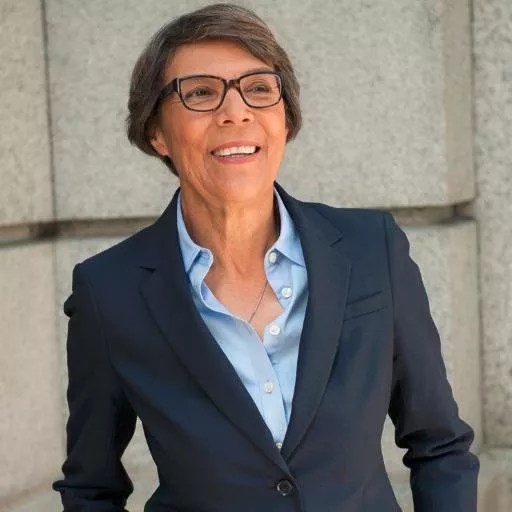

Audio By Carbonatix
As many observers had expected, the latest attempt by Democratic lawmakers to repeal Colorado’s seldom-used death penalty was defeated in a committee hearing Wednesday evening, the 3-2 vote cast strictly along partisan lines – after emotional testimony from families of homicide victims on both sides of the issue that underscored how deeply divided the state remains on the issue of capital punishment.
Colorado Senate Minority Leader Lucia Guzman, the sponsor of the repeal bill, kicked things off by reading a yellowed newspaper article about the murder of a 72-year-old man in a small Texas town in 1975; he’d been assaulted with a crescent wrench in a robbery that netted $7 and some change.
“The man on the floor was my dad,” Guzman told the members of the Senate Judiciary Committee, her voice wavering. “I want you to know that I am a victim, too. But I am also here as someone who believes we should not kill people who kill people.”
An ordained minister, Guzman wasn’t the only victim advocate in the room last night who also opposes the death penalty. In 2009 a coalition of faith groups, families of homicide victims and other abolitionists came within one vote of banning executions in Colorado, contending that the millions spent on prosecutions and death-sentence appeals could be better used to solve more cold cases and put more killers behind bars for life. More recently, victim family members such as Bob Autobee and Tim Ricard (who attended last night’s hearing) have actively campaigned against the death penalty, because they have either foresworn vengeance or become frustrated with the protracted legal process of capital cases or both.
Even though Colorado’s moribund death penalty has only been used twice in the past fifty years – most recently in the case of Gary Davis in 1997 – repeal efforts have been consistently met with strong objections from district attorneys and victim rights groups. Last night’s hearing was no exception.

State senator Rhonda Fields, a death-penalty supporter, stepped down from the committee hearing Guzman’s repeal bill.
rhondafields.com
As death-penalty expert Michael Radelet pointed out in an interview with Westword a few days ago, Guzman’s bill had been expected to sink because of the makeup of the committee considering it. The three Republicans on Senate Judiciary – chair Bob Gardner, former lawman John Cooke, and Don Coram – are all staunch law-and-order types, as they demonstrated earlier that day in shooting down an asset-forfeiture reform bill that was opposed by a convoy of police agencies. Until recently, one of the two Democrats on the committee was also a well-known supporter of the death penalty, Rhonda Fields – whose son Javad Marshal-Fields and his fiancée, Vivian Wolf, were murdered in 2005 by Sir Mario Owens and Robert Ray, two of the three current residents of Colorado’s death row. Fields agreed to a reassignment to give Guzman’s bill more of a chance of surviving the committee vote.
But that didn’t mean the Fields family was going to stand silent on the issue. The first member of the public to testify against Guzman’s bill was Maisha Fields, Javad’s sister, who talked about the “six years of trials and testimony” the family endured “to get justice for Javad and Vivian.” Because Ray and Owens had already received life sentences for another murder – a murder Javad had witnessed and was expected to testify about when he was murdered – the death penalty was the only meaningful punishment available, she said.
“I’m ashamed that we’re here today,” Fields told the senators. “Have the courage to say no.”
A procession of witnesses from both sides of the aisle followed, but the result was already implicit in the composition of the panel, and of the state Senate as a whole, where GOP lawmakers enjoy a one-vote edge. After the vote, Senator Gardner issued a statement affirming that his constituents believe in keeping execution as an option – albeit a costly and rarely realized one – in particularly heinous cases. “Coloradans support the death penalty, and we stand with our communities,” he said.